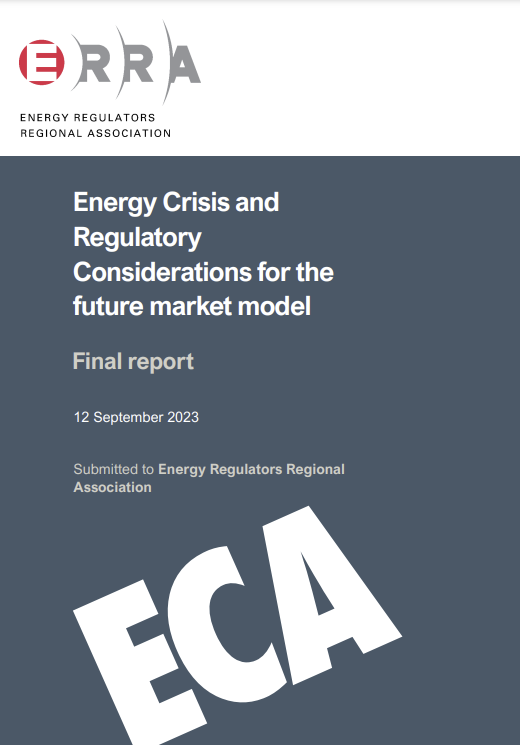The energy crisis that emerged in 2021 and intensified in 2022, following Russia’s invasion of Ukraine, generated unprecedented price increases in many countries, requiring governments (and regulators) to intervene through a range of measures, primarily to support affordability, whilst also prompting debate as to whether electricity markets were delivering for consumers.
ECA was pleased to have been commissioned by ERRA to review and report on experiences from the energy crisis to serve as a guide for ERRA’s members preparing for and responding to future crises.
Drawing on examples from a wide range of countries, with different energy markets and systems, the report provides: (a) an overview of short-term policy and regulatory measures adopted to address the crisis (mostly to support access to affordable energy) and lessons that emerge from these; and (b) in the context of evolving energy supply and market paradigms, consideration of longer-term policies and measures, including for electricity market design.
Objectives and scope:
The objective of this study is to highlight experiences from the recent energy crisis that can serve as a guide for responses to future crises affecting ERRA members’ electricity sectors.
This report is intended to benefit all ERRA members (both those who are EU members, and those who are outside the EU and undergoing the energy reform process) by providing information and analysis to enhance understanding of the challenges posed by the energy crisis. As well as summarising the causes and evolution of the crisis, the report:
- Presents an overview of measures taken and considered to address the crisis, with specific examples from amongst ERRA’s membership base, but also more widely. Across ERRA members there are different regulatory and market models, with differing roles and powers for those members. This means responses by a regulator that are possible and suitable in one jurisdiction may be neither possible nor suitable in another. Given these differences in models, the report considers a wide range of responses, from policy, through regulatory to issues of electricity market design, as well as the circumstances in which the response may be appropriate. These measures include not just from actions taken in response, but also consideration of potential other actions that could have been taken.
- Reflects on lessons learned from the measures implemented and presents possible future policy options.
Although the focus of the report is on electricity, given the important interaction between gas and electricity, gas market interventions are considered where relevant to the electricity market.
Share this report:

